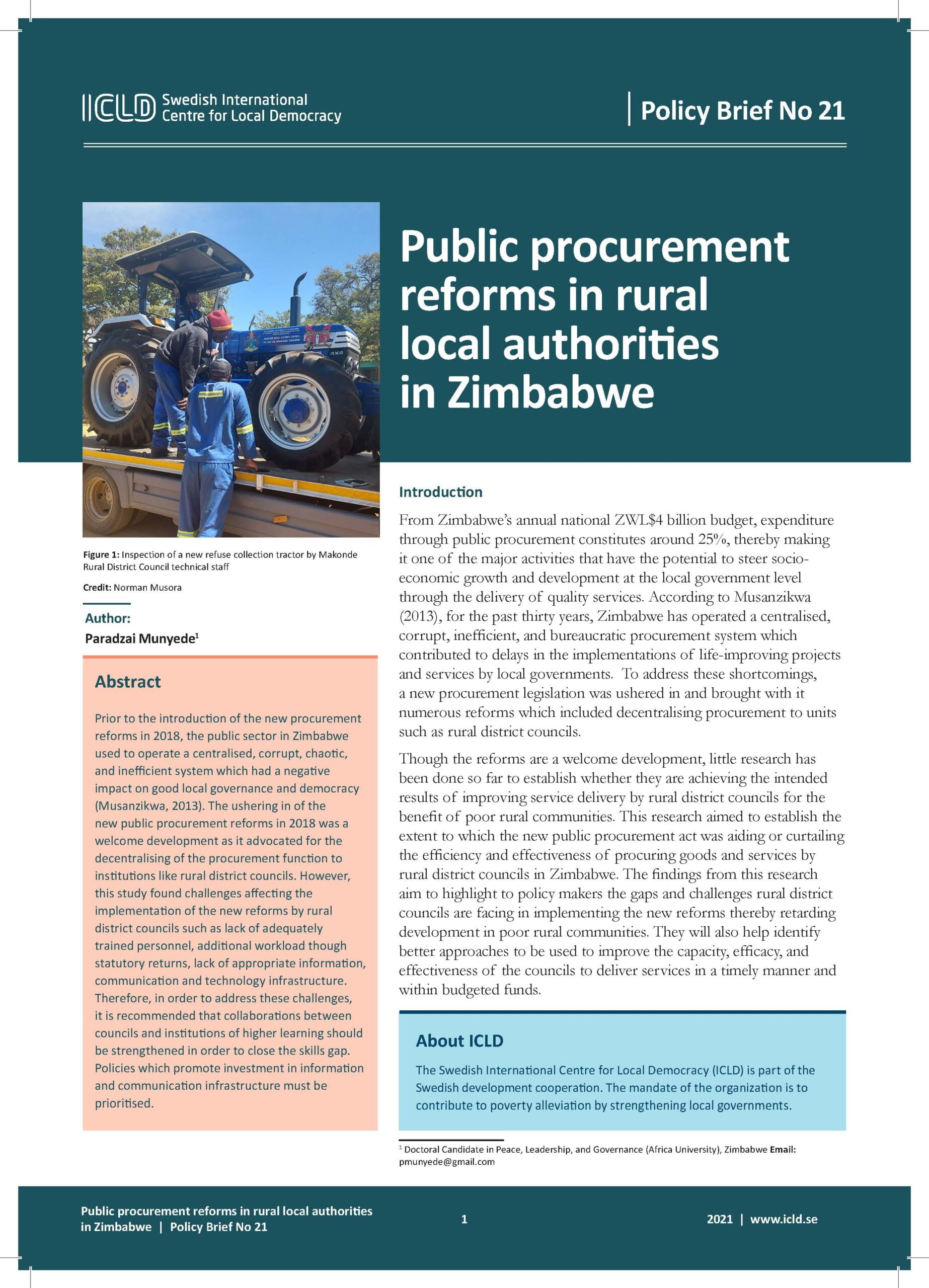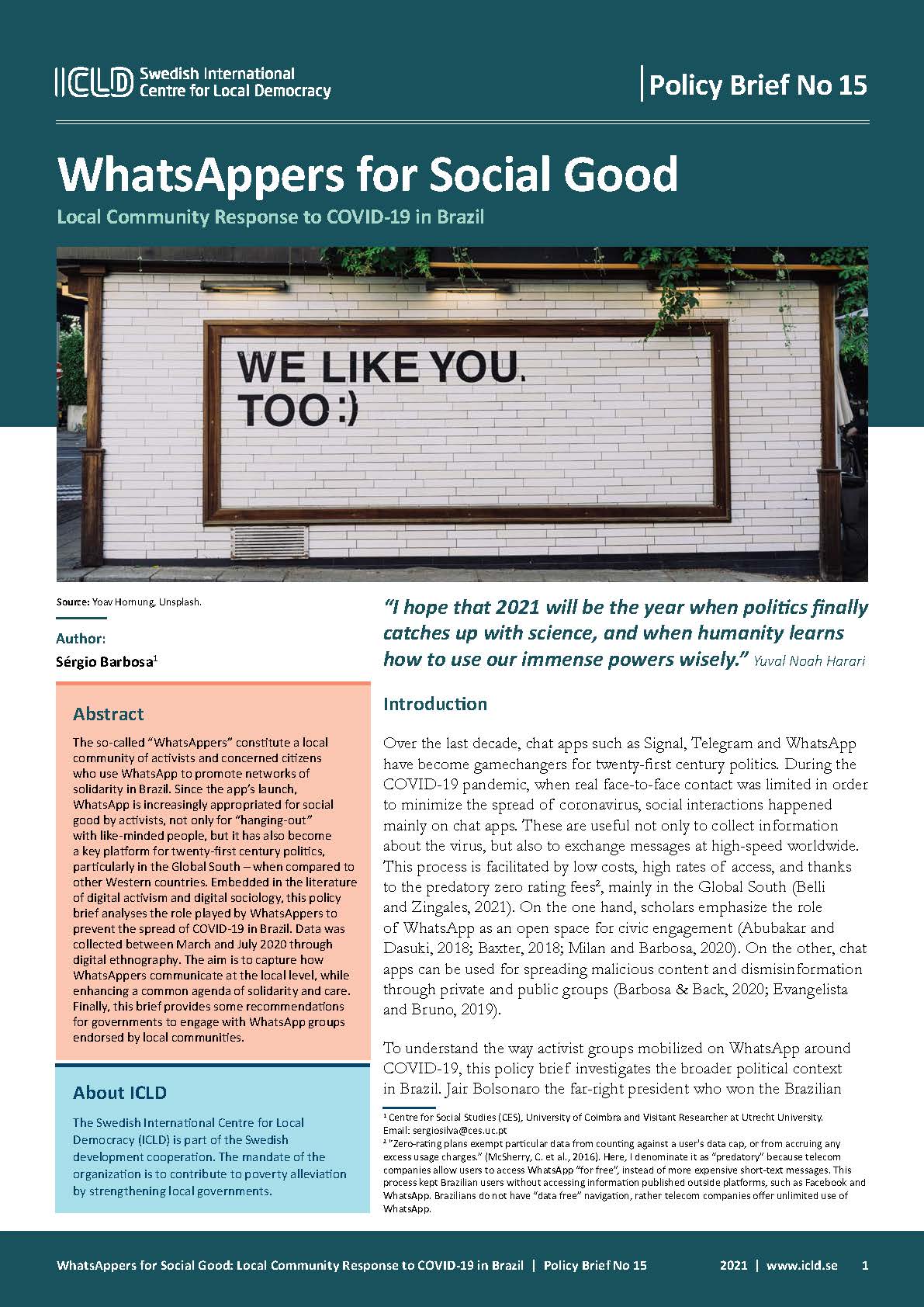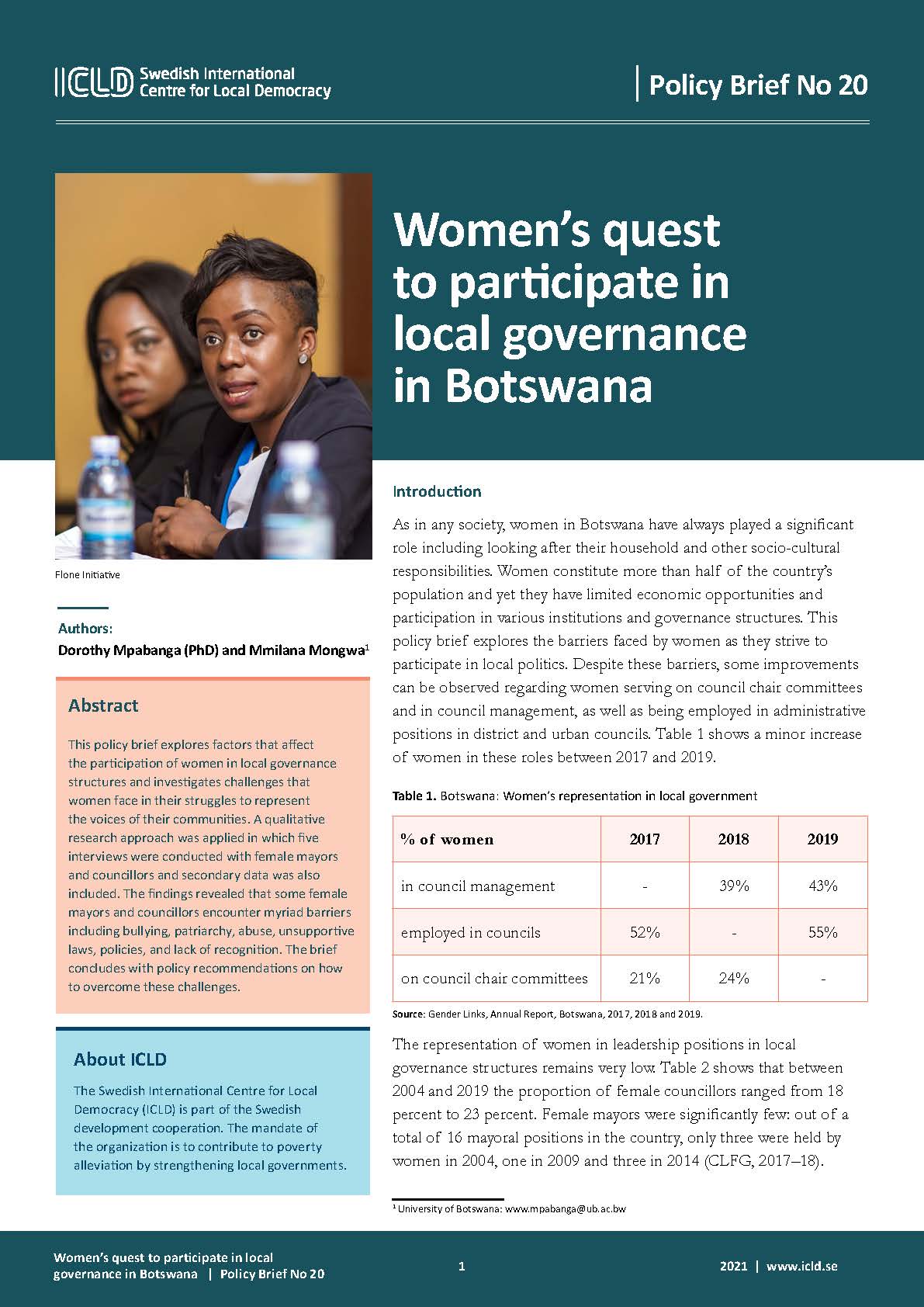Policy Briefs
-
Problems of Public Participation in Urban Improvement Programmes: Cases of Petrozavodsk, Yekaterinburg and St Petersburg
As part of the LUPSRUSS³ -2 project, our team compared the implementation of the state-run ‘Creation of Comfortable Urban Environment’ programme in three Russian cities. Based on the analysis of regulatory documents, media and social network publications, surveys and interviews, we identified the main problems associated with public engagement in the formation of a comfortable…
-
Overcoming Barriers to Participate in Local Democracy for People with Disabilities: The Case of Zimbabwe
This policy brief discusses barriers to the inclusion and participation of people with disabilities in local democracy in rural Zimbabwe and provides recommendations for enhanced participation. The analysis is part of a broader mixed research study on the inclusion and participation of vulnerable groups in Zimbabwe’s local democracy. Results of the study show how people…
-
Reducing the negative effects of climate change: Lessons from the Citizens’ Assembly on Climate Change in Budapest
In 2020 the City Council of Budapest invited locals to take part in the Citizens’ Assembly on Climate Change in order to develop a climate strategy that matched people’s lives and aspirations. This policy brief provides empirical evidence of how local governments can address the problems of climate change in cooperation with non-governmental organisations and…
-
Closing or keeping open public schools during COVID-19 in Serbia: finding the middle way
This policy brief offers a practical, feasible action plan for how to preserve and enhance the provision of public education in deprived suburban neighbourhoods during a pandemic. Based on critical insights collected in the past year at the urban periphery of Belgrade (Serbia), the brief suggests a shift in perceiving public schools in deprived suburban…
-
Public procurement reforms in rural local authorities in Zimbabwe
Prior to the introduction of the new procurement reforms in 2018, the public sector in Zimbabwe operated a centralised, corrupt, chaotic, and inefficient system which had a negative impact on good local governance and democracy. The ushering in of the new public procurement reforms in 2018 was a welcome development as it advocated for the…
-
WhatsAppers for Social Good: Local Community Response to Covid-19 in Brazil
The so-called “WhatsAppers” constitute a local community of activists and concerned citizens who use WhatsApp to promote networks of solidarity in Brazil. Since the app’s launch,WhatsApp is increasingly appropriated for social good by activists, not only for “hanging-out” with like-minded people, but it has also become a key platform for twenty-first century politics, particularly in…
-
Women’s quest to participate in local governance in Botswana
This policy brief explores factors that affect the participation of women in local governance structures and investigates challenges that women face in their struggles to represent the voices of their communities. A qualitative research approach was applied in which five interviews were conducted with female mayors and councillors and secondary data was also included. The…
-
Human rights in Gaborone and Johannesburg: finding meaning in local context
Cities are critical human rights actors. Human rights are interpreted through local culture, history, politics and context. Cities are increasingly at the heart of this process of interpreting and “localizing” (Camilo Sanchez 2020) for a growing share of the world’s population. How can we support the development of civic human rights initiatives in Southern Africa…
-
Building Political Will to Combat Corruption
Pervasive corruption presents a challenge to scholars, practitioners, and activists. This policy brief reviews academic and policy perspectives on political will in anti-corruption efforts. The importance of political will for the success of anti-corruption reforms is widely cited, but knowledge gaps remain regarding why political will arises (or fails to do so). This policy brief…
-
Improving local budget processes: from inclusion and transparency to equity and quality
This policy brief analyses local budget processes and provides recommendations for their improvement. The analysis is based on the example of North Macedonia. We find evidence that: 1) greater transparency leads to greater citizen satisfaction with the quality of local services, especially for marginalised groups; 2) greater inclusion leads to greater citizen satisfaction with how…








